Which vegetables are low in carbs?
We’ve investigated which vegetables are low in carbs – because not all veg is created equal
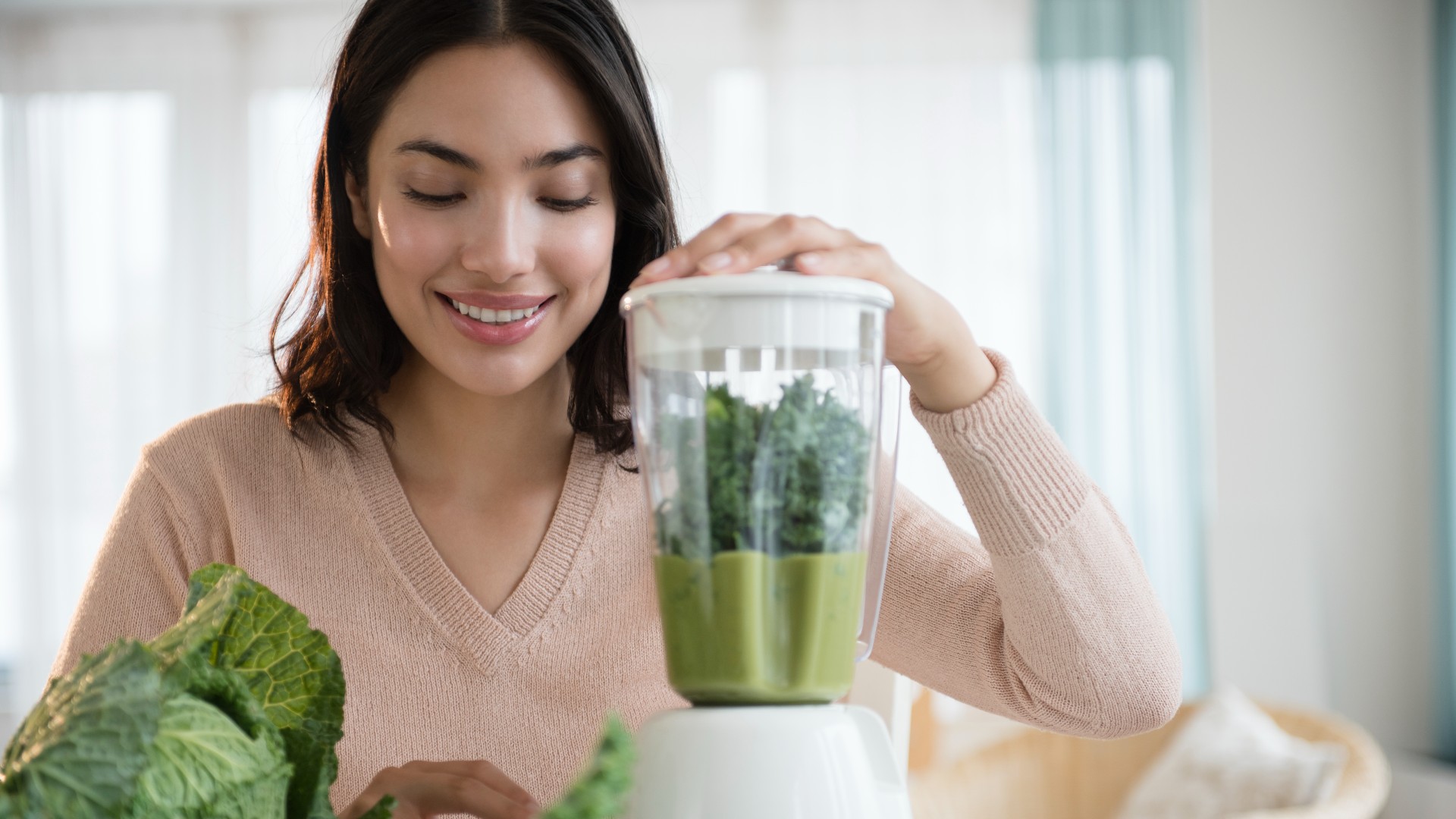
Get the world’s most fascinating discoveries delivered straight to your inbox.
You are now subscribed
Your newsletter sign-up was successful
Want to add more newsletters?

Delivered Daily
Daily Newsletter
Sign up for the latest discoveries, groundbreaking research and fascinating breakthroughs that impact you and the wider world direct to your inbox.

Once a week
Life's Little Mysteries
Feed your curiosity with an exclusive mystery every week, solved with science and delivered direct to your inbox before it's seen anywhere else.

Once a week
How It Works
Sign up to our free science & technology newsletter for your weekly fix of fascinating articles, quick quizzes, amazing images, and more

Delivered daily
Space.com Newsletter
Breaking space news, the latest updates on rocket launches, skywatching events and more!

Once a month
Watch This Space
Sign up to our monthly entertainment newsletter to keep up with all our coverage of the latest sci-fi and space movies, tv shows, games and books.

Once a week
Night Sky This Week
Discover this week's must-see night sky events, moon phases, and stunning astrophotos. Sign up for our skywatching newsletter and explore the universe with us!
Join the club
Get full access to premium articles, exclusive features and a growing list of member rewards.
While carbohydrates are an important part of most people’s diets, if you’re trying to cut down for health reasons you may want to get familiar with which vegetables are low in carbs.
Carbohydrates are one of the three important macronutrients that we need for a healthy and balanced diet. Low-carb vegetables generally grow above the ground, while root vegetables and starchy underground vegetables – such as carrots, parsnips and yams – can be fairly high in carbohydrates.
While carbs are an important part of most people’s diets and the body’s preferred source of energy, if you are consuming a higher percentage of your caloric intake in protein or fat, like on a low carb diet or a keto diet, you may find yourself wanting to cut down on carbohydrates to make room. So here are the best low carb vegetables to include in your meals.
1. Mushrooms
According to Roxana Ehsani, registered dietitian nutritionist and national media spokesperson for the Academy of Nutrition and Dietetics, mushrooms are one of the only sources of vitamin D found in the produce department, but that also contain just 2g of total carbohydrates per 1 cup. “They are a great plant-based meat substitute thanks to their meat-like flavor,” she says.

Roxana Ehsani is a board-certified specialist in sports dietetics and a National Media Spokesperson for the Academy of Nutrition and Dietetics. She holds a Bachelor of Science in Human Nutrition, Foods and Exercise from Virginia Tech and a Master of Science in Clinical Nutrition and Dietetics from the University of Pittsburgh. Below, she gives her advice on what to look for in a multivitamin for women.
Dr Deborah Lee, a medical doctor and writer for Dr Fox Online Pharmacy, also adds that mushrooms are high in B vitamins, which are especially important for the production of red blood cells and for heart health. “They also have a high mineral content, for minerals such as selenium, zinc and copper,” she says. “Mushrooms are also rich in those all-important antioxidants and high in fiber.”
You can add mushrooms into stews or soups, or grill them up with garlic and have them as a side dish. There are a huge variety of mushroom types, so you can experiment with flavors and textures until you find a combination you enjoy.
- 100g of mushrooms contains 5.3g of carbs and 28 calories
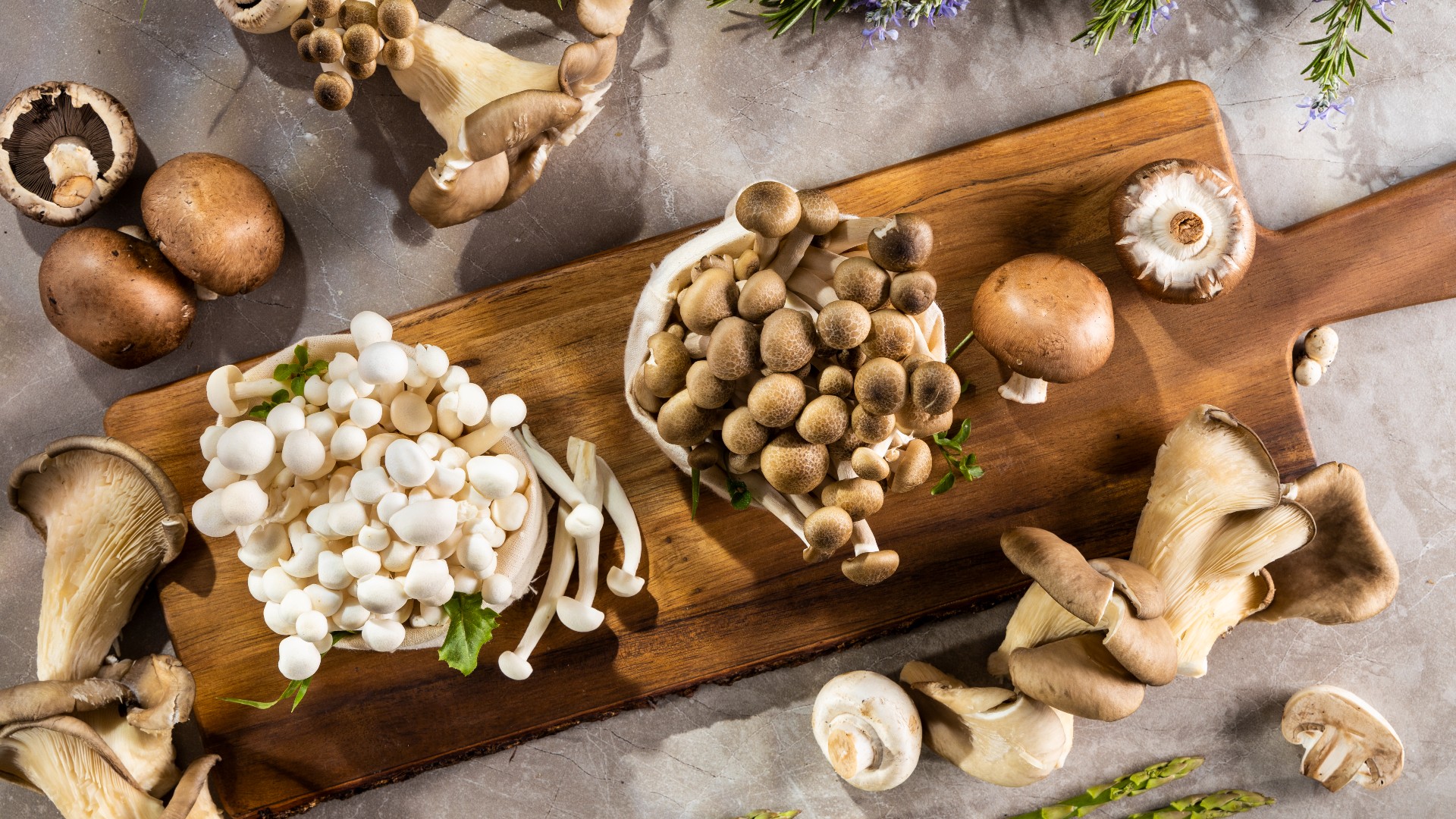
2. Zucchini
Zucchini is a small summer squash that has a neutral flavor, making it easy to dress, season and prepare however you like. It is low in carbs and calories and makes a great low-carb base for meals.
Get the world’s most fascinating discoveries delivered straight to your inbox.
“Zucchini is one veggie a lot of people may use in place of noodles,” says Ehsani. “You can easily spiral them into zoodles for a low-carb spaghetti alternative, but they also are a good source of vitamin C.”
- 100g of zucchini contains 3.1 g of carbs and 17 calories
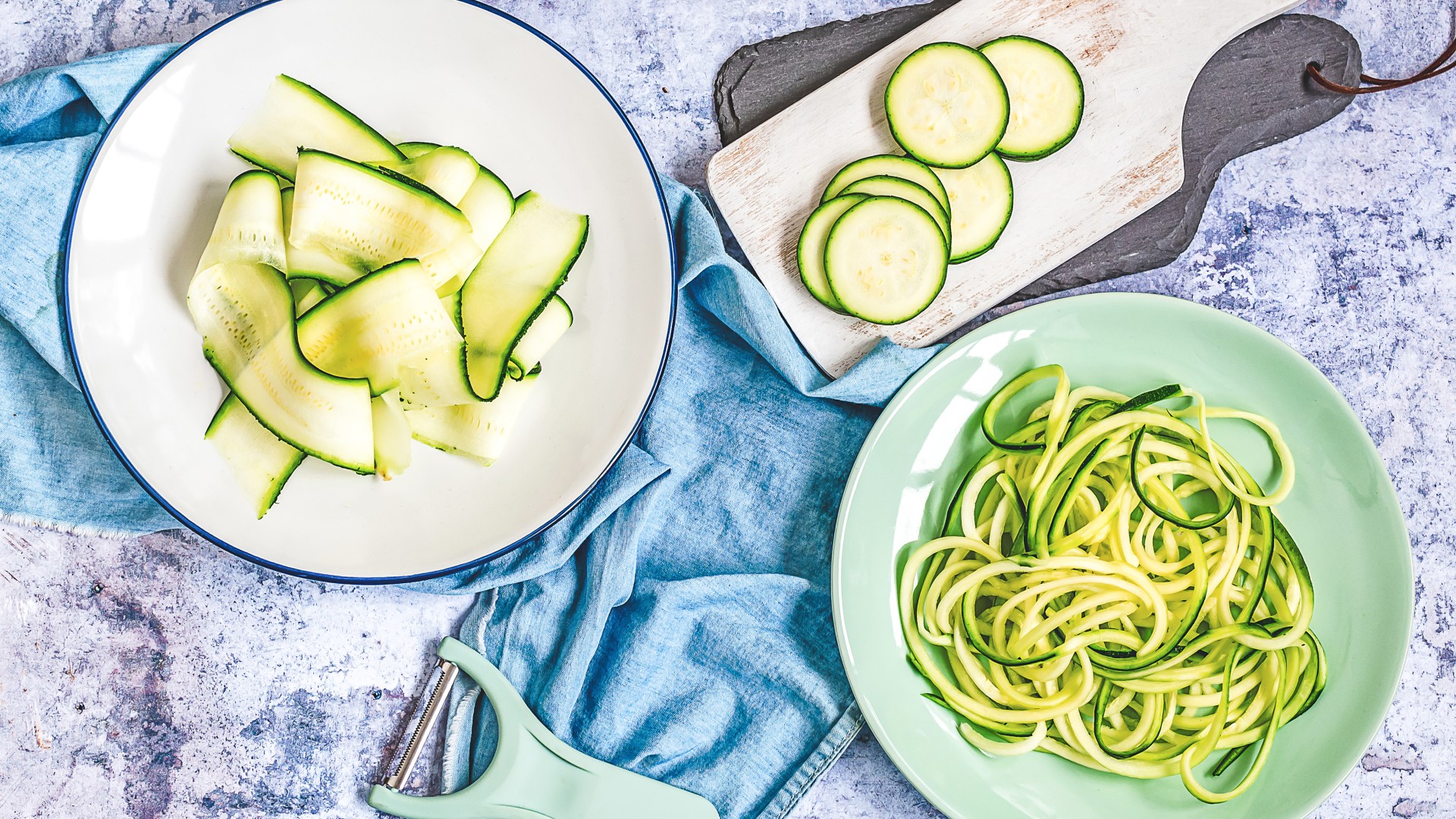
3. Dark green leafy vegetables
Green leafy vegetables such as spinach grow above the ground, making them low carb. Spinach in particular is a powerhouse of nutrients, according to Ehsani.
“Spinach is loaded with vitamin K and iron, and can easily be added into meals. You can add spinach leaves to your salad and add baby spinach to your smoothie for added nutrients, without really even tasting it.”
You can also add it to soups, stews or stir-frys at the end of the cooking process, so you don’t overcook it and lose its nutrients.
Spinach is hailed as a ‘functional food’ in a review in the journal Food & Function, which lists the benefits of spinach as “anti-cancer, anti-obesity, hypoglycemic, and hypolipidemic”. If you don’t like spinach, swap it for other dark green leafy vegetables, such as kale or beet leaves for a similar nutritional profile.
- 100g of spinach contains 3.8g of carbs and 23 calories
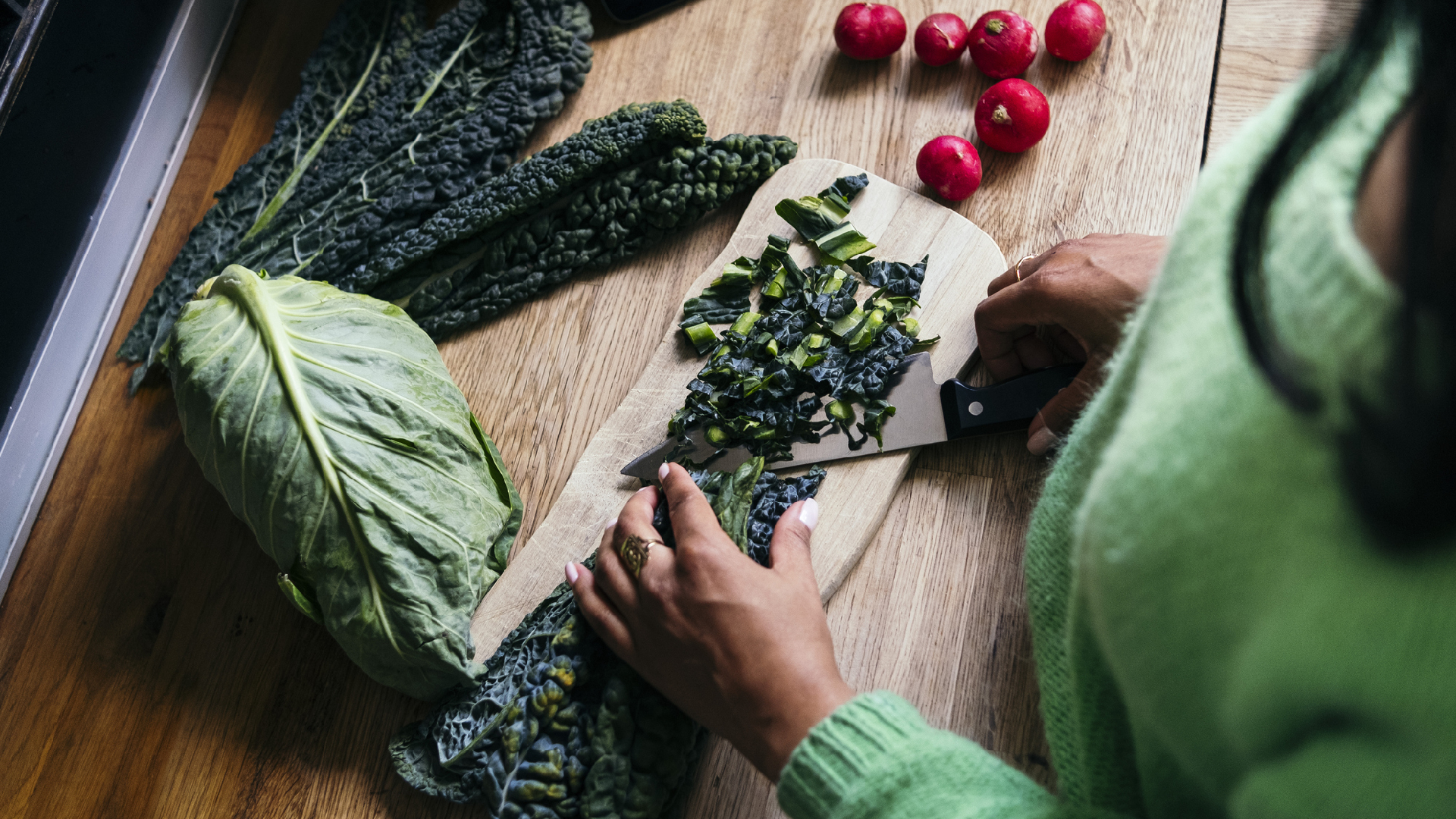
4. Cauliflower
“Cauliflower is a type of cruciferous vegetable that is rich in vitamins and minerals, like vitamin C and antioxidants, which can be cancer preventing,” says Ehsani. “It's another great carb replacement, as you can make it into low-carb pizza crusts and flatbread, turn it into steaks, mash into a mashed potato substitute or grate it into rice.”
The idea of replacing your favorite carbs with cauliflower may put you off, but it has a neutral flavor and absorbs seasoning well, making it a versatile addition to any diet.
A review in the Polish journal Roczniki Państwowego Zakładu Higieny [Annals of the National Institute of Hygiene] links brassica vegetables, such as cauliflower, broccoli and cabbage, to cancer prevention, reduction of oxidative stress and immune system stimulation among other benefits. This may be due to the presence of phytochemicals, including isothiocyanates (sulforaphane).
- 100g of cauliflower contains 5g of carbs and 25 calories
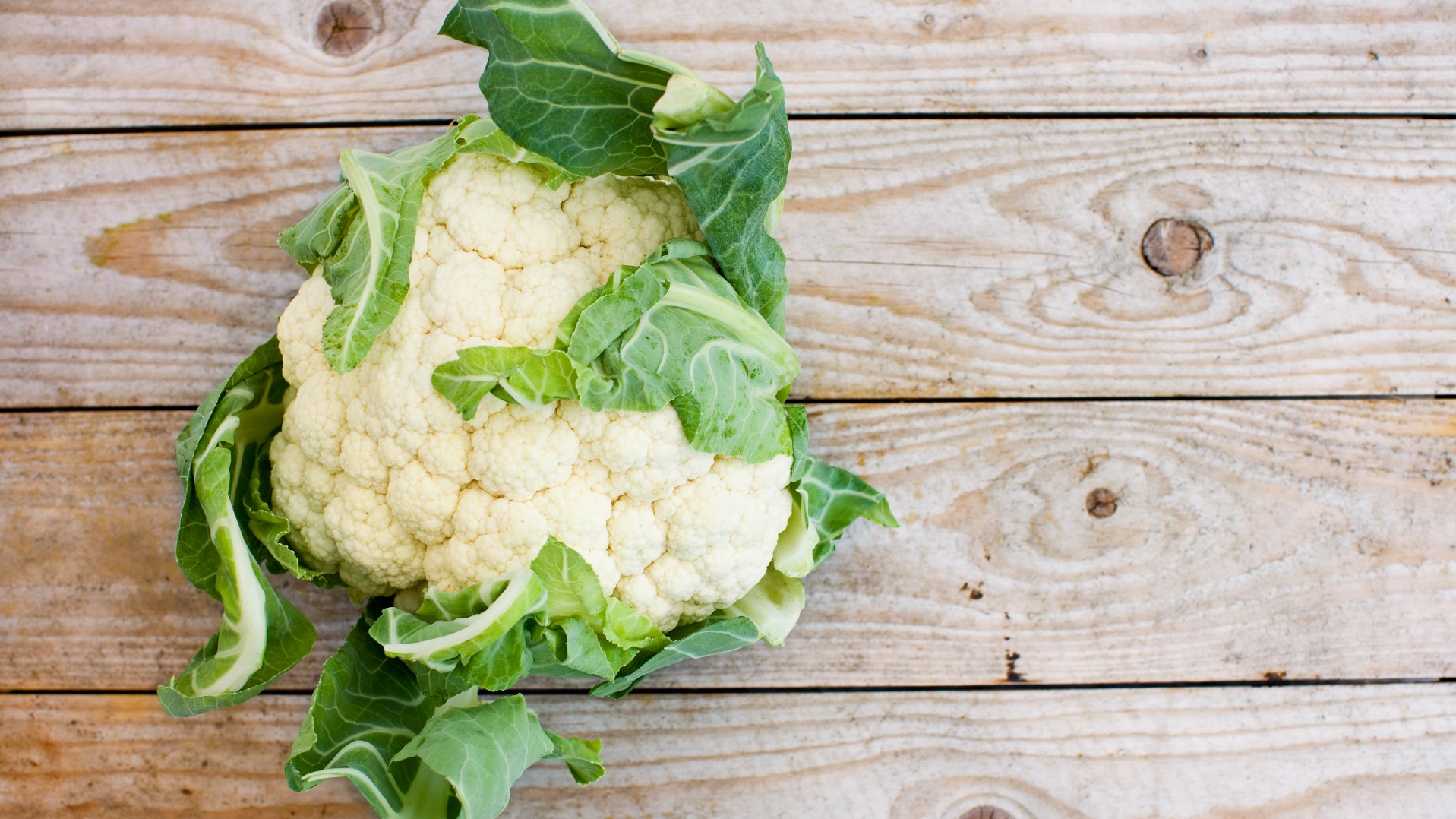
5. Tomatoes
Tomatoes are another versatile low-carb vegetable. “They are a rich source of vitamin A, C and K, and contain potassium,” says Ehsani. “They can be easily incorporated into any meal or dish, added to salads, used in stews or soups.”
Tomatoes also contain a carotenoid called lycopene, which is one of the most powerful antioxidants according to a review in the Canadian Medical Association Journal. Oxidative stress has been linked to Alzheimer’s disease and cancer, making antioxidants such as lycopene vital for disease prevention.
- 100g of tomato contains 3.9 g of carbs and 18 calories
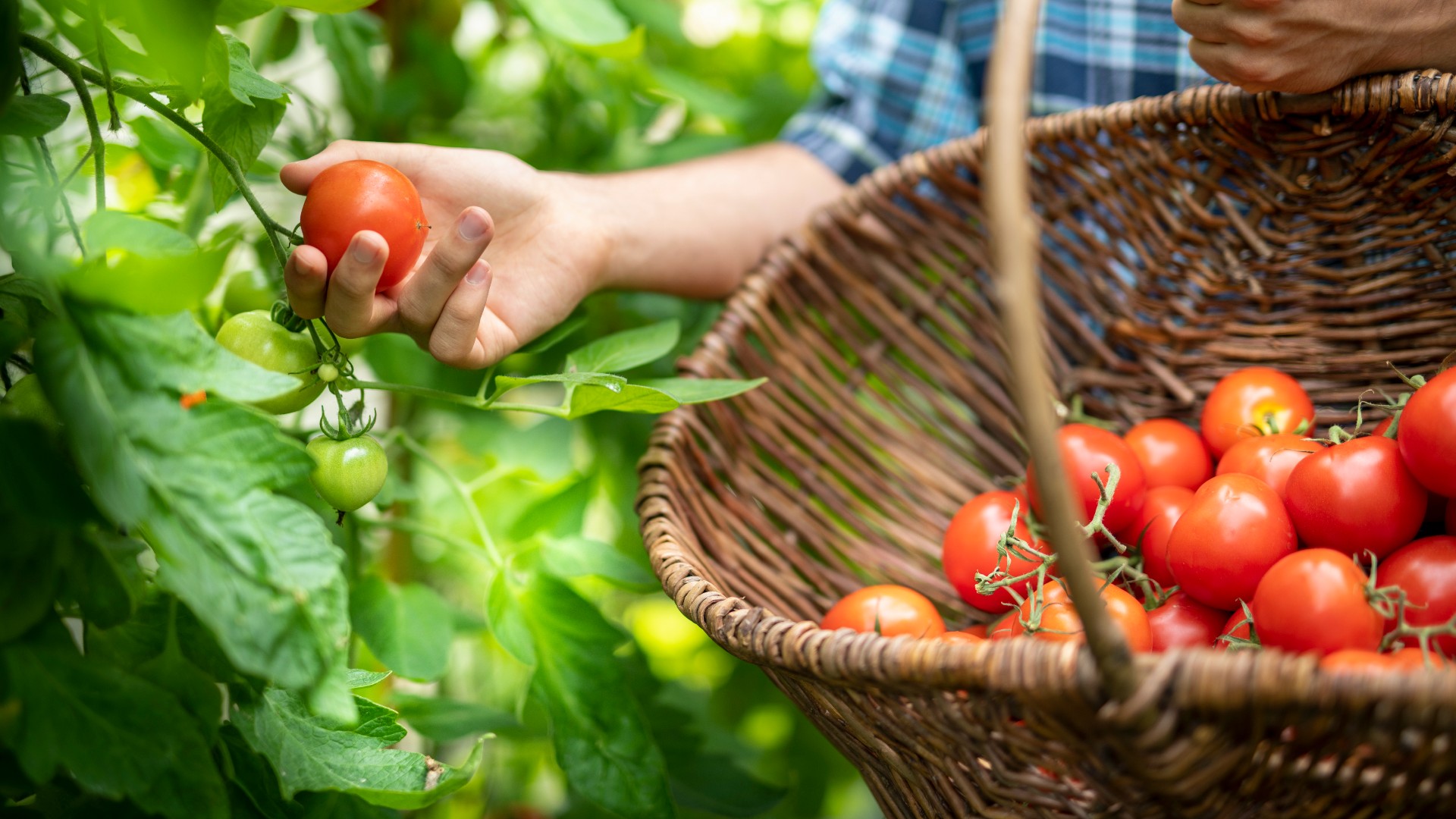
- Related: Nine benefits of antioxidants
6. Broccoli
Lee says that the high vitamin C content of broccoli makes it an excellent addition to a low-carb diet. “It is high in vitamin C, vitamin K, folate, potassium, manganese and iron,” she says. “One cup of broccoli contains 9% of your total daily fiber intake. Broccoli is a cruciferous vegetable, which is thought to have cancer-preventing properties, largely due to the presence of a phytochemical called indole-3-carbinol. Several studies have shown this to suppress the growth of breast, colon and prostate cancer cells. It has been observed to increase apoptosis – cell death and destruction – of breast cancer cells.”
Steam or stir fry broccoli to reduce water soluble vitamin loss through cooking, or add more delicate sprouting broccoli raw into salads.
- 100g of broccoli contains 7.2g of carbs and 35 calories
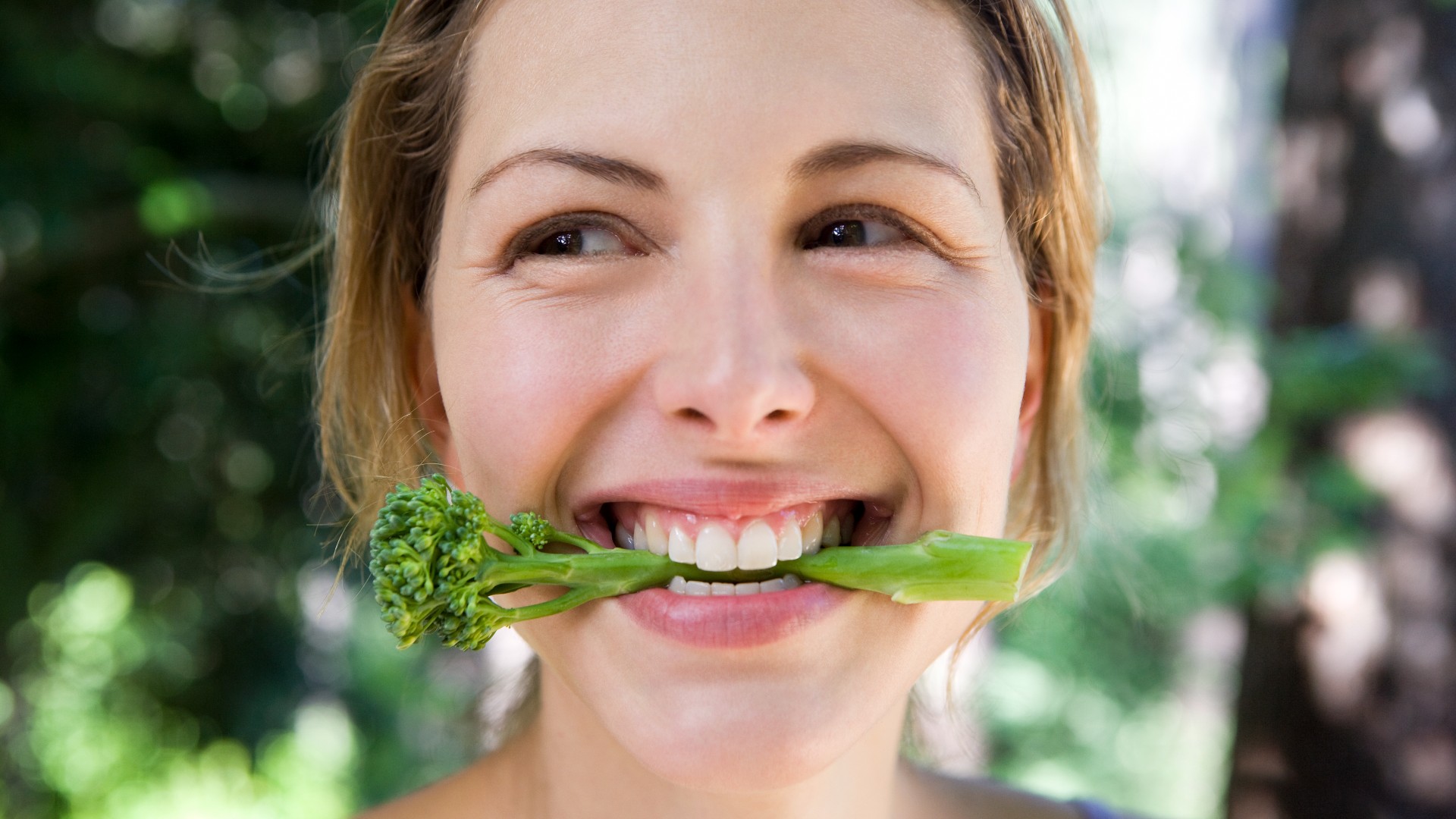
7. Celery
Celery has a low glycemic index, which means it releases its energy slowly and leaves you feeling fuller for longer.
“Celery is high in vitamins A, C and K, as well as containing high levels of iron and folate,” says Lee. “It’s also low in sodium and high in fiber. Celery also contains apigenin, a flavonoid compound that has potent anti-inflammatory and anti-cancer properties. Being high in fiber, celery aids digestion. The high fiber content may be one reason why eating celery has been shown to lower blood pressure and lower cholesterol levels.”
- 100g of celery contains 3g of carbs and 16 calories
This article is for informational purposes only and is not meant to offer medical advice.

Lou Mudge is a health writer based in Bath, United Kingdom for Future PLC. She holds an undergraduate degree in creative writing from Bath Spa University, and her work has appeared in Live Science, Tom's Guide, Fit & Well, Coach, T3, and Tech Radar, among others. She regularly writes about health and fitness-related topics such as air quality, gut health, diet and nutrition and the impacts these things have on our lives.
She has worked for the University of Bath on a chemistry research project and produced a short book in collaboration with the department of education at Bath Spa University.
 Live Science Plus
Live Science Plus










